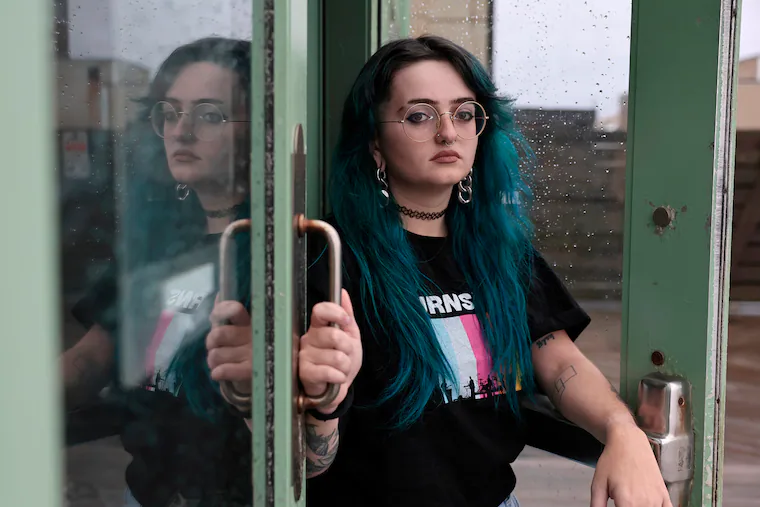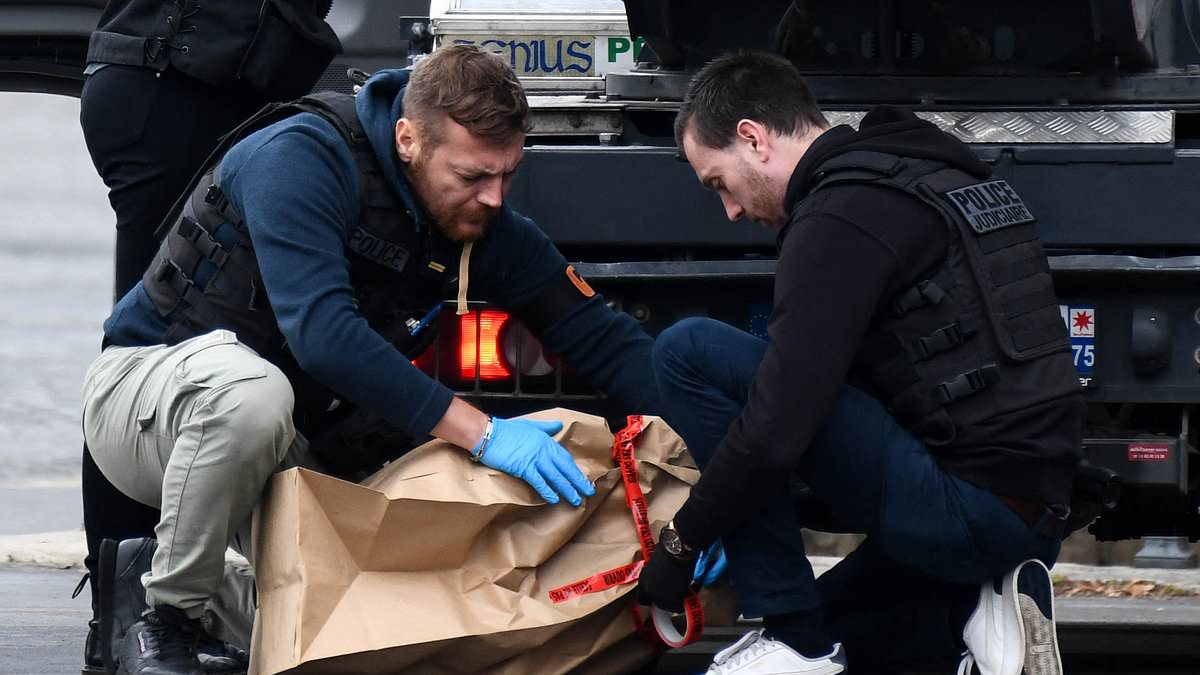Copyright The Philadelphia Inquirer

When one of her favorite bands, Mannequin Pussy, took the stage at the Mann Center in September, Mar Frigoletto wasn’t able to capture the moment on video. As fans of the punk rock group thrashed and swayed at the West Philadelphia venue’s Skyline stage, Frigoletto realized her iPhone was missing from the zippered bag she carried at her waist. “My keys were in there, my credit cards were in there, my ID was in there,” she said. Just no phone. After checking with guest services to see if anyone had turned in her lost device, the 29-year-old Asbury Park, N.J., woman learned that she was not the only fan pickpocketed that night. Kait Dorney, too, says her iPhone was stolen at the concert shortly after she slipped it into her front jeans pocket. Others in the crowd had the same experience, she said. “People started shouting about their phones,” said Dorney, 27, who traveled to Philadelphia from Boston for the show. “I was aware of the phone thefts at other shows already, but with the dancing and jumping, I didn’t put two and two together.” The two women were victims of a wide-scale cell phone theft incident that concertgoers say saw around 100 people line up to ask the venue about missing devices after the Sept. 19 show. A spokesperson for the Mann, now known as the Highmark Mann, did not return requests for comment. The concert, which featured the buzzy hardcore band Turnstile as headliner, was just one of several shows in the Philadelphia region in recent months during which fans have said on social media that their devices were snatched. And in many cases, the phones aren’t staying in local thieves’ pockets, but are taken out of state and then ferried to China, where authorities say a black market for phones from Western countries is thriving. The United Kingdom has become a global hub for criminal groups that steal phones and resell them overseas. Last month London’s Metropolitan Police Department arrested members of a group accused of trafficking more than 40,000 stolen devices to China, where they were either wiped and resold or stripped for their parts at bustling secondhand technology markets. But these types of crimes have not been a priority for law enforcement in the United States, where incidents like the one at the Mann have become more common in the last year, according to those who study crimes involving technology. “As we start seeing international black markets develop for fencing these types of phones, we’re seeing more organized efforts that involve hundreds of devices being shipped to entities within those countries — in this case, China,” said Robert D’Ovidio, a veteran criminologist and cybersecurity researcher at Drexel University. “They have access to the networks to get rid of those devices.” Frigoletto and other victims of such thefts who spoke with The Inquirer were able to trace their phones through the iPhone’s Find My app, which allows users to track the GPS location of their devices in real time. They say their phones first pinged in places like Paterson, N.J., and New Rochelle, N.Y., in the hours and days after the show. Some later traced them thousands of miles away to cities like Hong Kong and Shenzhen, China. Law enforcement officials say there is not much that can be done once a phone is stolen. And it is difficult to assess the extent of the problem because many police departments do not separate cell phone theft from other property crimes, according to D’Ovidio, making it challenging to understand the true scope of the problem. Phone theft at the city’s concert venues is “not uncommon,” said Jasmine Colón-Reilly, a spokesperson for the Philadelphia Police Department, though she stopped short of calling it a widespread problem. Philadelphia police say thousands of cell phones are reported stolen in the city each year — about 2,650 so far this year alone. But they say overall reports of phone theft are down. Last year, police data show, 3,675 cell phones were reported stolen, compared with more than 4,000 the previous year. But experts say those numbers are likely an undercount. Most victims of phone theft do not report the crimes, those who study such thefts say. And few of those whose phones were taken at venues in the city this fall said they filed police reports, believing authorities have bigger priorities, such as violent crime, or lack the resources to tackle crimes that span international borders. “They don’t have an unlimited team of investigators, so they have to pick and choose,” D’Ovidio said. “It’s low-value theft, and unless there’s an organized nexus to it that can be easily tracked — multiple thefts committed by a single group — it’s going to be very difficult for law enforcement.” For Rory Kirke, a trip from New York to see a show at Franklin Music Hall last month ended in phone theft. During a set of the pop-punk band The Story So Far at the North Philadelphia venue, Kirke said, his friend realized his phone was missing from his pants pocket. Like Frigoletto at the Mann, Kirke and his friend watched the show near the front of the stage, where he believes the noise and throngs of concertgoers made it easy for the robbery to go unnoticed. “By the end of it, maybe 10 or 11 of us were all looking around” the floor for phones, said Kirke, 30. At guest services, he said, about 20 people lined up to ask about missing devices. “Obviously no one found their phone.” Representatives of Franklin Music Hall did not respond to requests for comment. Reddit users have reported similar thefts at concerts and nightclubs like Voyeur and the HiJinx music festival at the Convention Center. The thefts at the Turnstile concert at the Mann were widely discussed on social media. And Turnstile fans in Boston and New York also reported phone thefts at shows this fall, suggesting the tour has become a target for thieves on the East Coast. That has led the band to acknowledge the problem. At an early October show in Los Angeles, Turnstile projected a warning message to fans on the big screen: “ATTENTION SECURE YOUR PHONE K THX BYE.” Dorney said the Find My app showed that after a brief stopover in Flushing, in New York’s Queens borough, her stolen device ended up 8,100 miles away at an industrial building in Hong Kong. Frigoletto says the app showed that her phone, too, ended up in Hong Kong, in the Guangzhou neighborhood. Criminologists say China is a popular resale destination for stolen phones. That is in part, they say, because mobile network operators there do not blacklist phones that are reported stolen, a practice used by carriers like Verizon and AT&T that makes the devices useless to new users. “Major carriers in China do not participate” in blacklists, said D’Ovidio, the Drexel researcher. “They don’t care if someone in France, in Essington, in Radnor or Philly reported their phone stolen.” Cities like Shenzhen have electronics bazaars where stolen phones are resold and technicians dismantle devices to resell their parts, he said. One building in the South China metropolis is the final destination of so many missing devices that some victims of the thefts have dubbed it “the stolen iPhone building," according to the Financial Times. Reselling stolen phones has become more challenging for thieves in recent years as phone developers enhance security features. Those include the apps like Find My that allow users to remotely lock a device, rendering it inoperable. But stolen phones that continue to work can sell for $1,000 or more on secondhand Chinese markets, according to D’Ovidio, a more lucrative move than stripping the device for parts. So some thieves go to great lengths to access locked devices, he said. Some will attempt to reset the Apple ID login information or crack simpler passcodes. Others will try to persuade theft victims to unlock their stolen devices remotely. Just days after her phone was stolen, Dorney got a text message from an international number that began in a distinctly Philadelphia way. “Yo!!” said the message, which purported to be from someone named James. He said he had recently bought a used iPhone15 and was having trouble accessing it because Dorney had locked it remotely. He was able to reach Dorney because Find My displayed a secondary number on the locked screen for people to call should they find her device. But instead of offering to return the phone, the sender suggested that Dorney remove the device from her Find My app, granting him full access — presumably to resell it or use it himself. Dorney ignored the request. Frigoletto received a similar text and did as the sender asked. She said the message was crafted to appear as if it came from Apple Pay, and even included an Apple logo that was deceptively similar to the company’s branding. While she didn’t lose any of her personal data, Frigoletto said, she regrets being duped into making her stolen phone usable to a stranger halfway around the world. Unlike many of the victims of phone theft, Frigoletto said she sought help from law enforcement to try to get hers back. When she saw her stolen phone ping in New Rochelle, N.Y., she called the police department there for help. “They pretty much said, ‘Nope, can’t do anything,’” she said. And although the Find My app said her phone had also pinged in the Bronx, she said, “I didn’t even bother calling the New York Police Department.”



